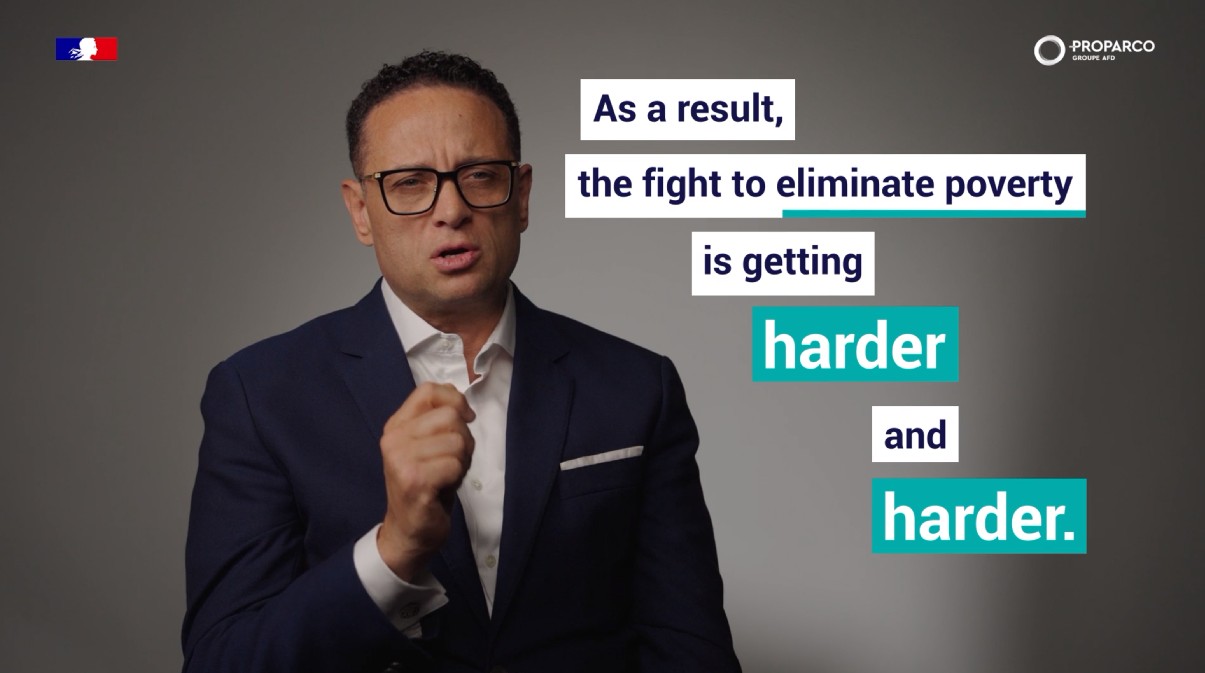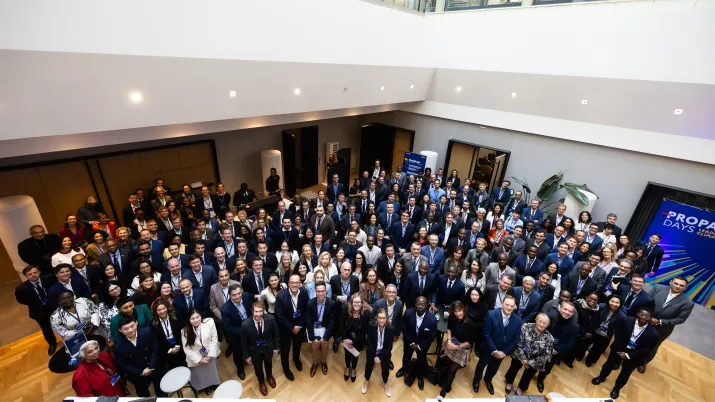Share the page
In Sub-Saharan Africa, the ARAF fund is strengthening the climate resilience of smallholder farmers
Published on
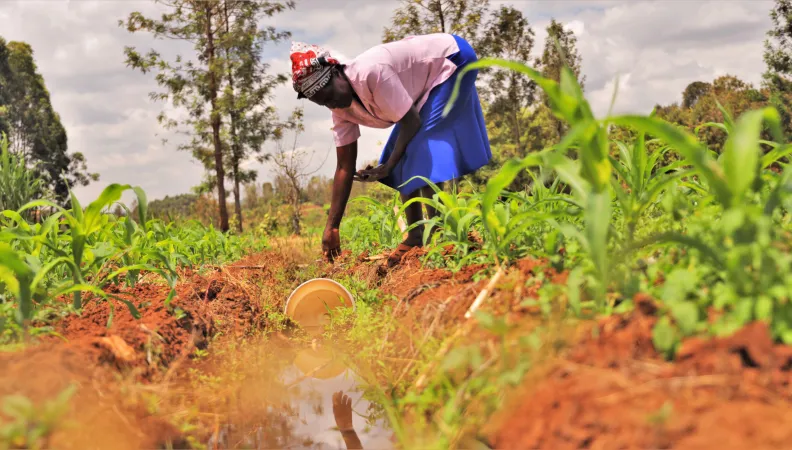
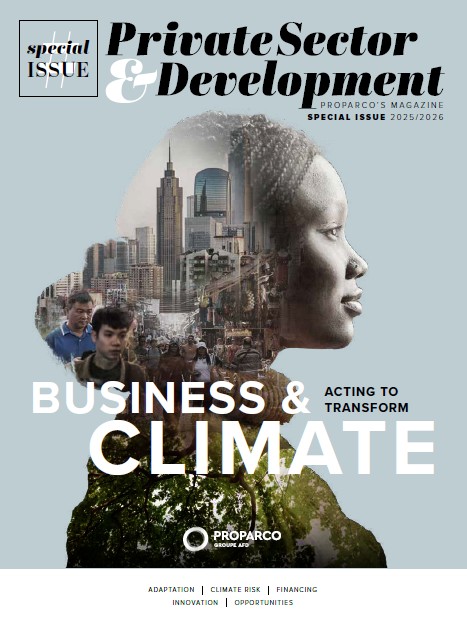
Private Sector & Development - Business & Climate: Acting to transform
Proparco has published a new edition of its Private Sector & Development magazine, focusing on the strategic role of the private sector and financial institutions in tackling the climate emergency.
Financed by several partners and development finance institutions – including Proparco, via AFD Group’s FISEA+ facility –, the ARAF fund targets the issues of food security and climate change. It invests in start-ups offering innovative solutions to improve the conditions and climate resilience of smallholder farmers in East and West Africa.
Tamer El-Raghy’s assessment is clear. “Climate change is wreaking havoc here,” warns from Nairobi the Managing Director of the equity fund ARAF (Acumen Resilient Agriculture Fund) which operates in several African countries affected by climate change. Intense floods followed by long periods of drought which degrade cultivated areas… “These disruptions weigh especially on the most vulnerable – women, children – and small-scale farmers who have very few means to protect and boost their crops.” This high exposure to these climate events consequently makes the performance of the agriculture sector in Kenya – and everywhere else in Sub-Saharan Africa – highly unstable, points out this expert who graduated from universities in Cairo and New York. “Indeed, over half of the people living in poverty are smallholder farmers. Yet they provide 80% of the food consumed in the region.” This illustrates how climate change, which hundreds of thousands of African farmers are facing, weakens local economies and exacerbates food security.
30% of beneficiaries below the poverty line
To address this situation, the ARAF fund, which was launched in 2020 by Acumen Capital-Partners – a subsidiary of Acumen, an organization specialized in supporting social enterprises in Africa –, invests in local start-ups. In December 2024, the portfolio of the ARAF fund was composed of 13 start-ups with operations in East and West Africa. The World Bank sets the poverty line at $3.20 per day in middle- and low-income countries. The Green Climate Fund has contributed $23 million to ARAF via a first loss guarantee facility. These impacts are evaluated on the basis of interviews carried out by a third party. offering innovative solutions to smallholder farmers. The objective is to build an ecosystem that will give farmers in East and West Africa the means to increase their incomes and improve their living conditions and resilience to climate change.
This adaptation requires diversifying crops (corn, vegetables, etc.), improving irrigation and facilitating access to the most climate-resistant seeds and species. “We’re currently investing in 13 start-ups ” says Tamer El-Raghy. “We target smalholder farmers where >30% of whom live below the poverty line.2 Through its action, ARAF seeks to reduce poverty, strengthen climate resilience and demonstrate the impact of investment in resilient agriculture.” ARAF is supported by the Green Climate Fund (GCF) and is financed with $58 million from several partners and development finance institutions, including Proparco which took a $5 million stake in 2021, through FISEA+, the AFD Group’s facility implemented by Proparco under the Choose Africa initiative.
Several crops every year
On the ground, the ARAF teams regularly measure the impacts on the living standards of farmers and their work. “The activities of the start-ups we’re supporting have directly impacted more than 2 million farmers in East and West Africa; 90% of which reported an increase in their income and an improvement in their quality of life,” says the fund’s MD. The Kenyan start-up SunCulture, which supplies solar irrigation systems to its clients, estimates that on average there has been > 100% increase in the disposable income of the farmers who benefit from its innovations.
This is the case of Josephine Waweru, a farmer specialized in coffee growing. She is based in Kirinyaga County, in central Kenya, and has installed a solar pump system supplied by SunCulture. “I used to use a really expensive and polluting gasoline system. I’ve also been able to diversify my crops to cope better with the risks related to climate change,” says the farmer. This observation is also shared by Jamleck Gichovi Karuri, who is based in another region in Kenya badly affected by the prolonged droughts. Thanks to a solar water pump system supplied by SunCulture, this breeder and farmer can now feed her livestock and harvest several crops every year.
The objective of ARAF is to build an ecosystem that will give farmers in East and West Africa the means to increase their incomes and improve their living conditions and resilience to climate change.
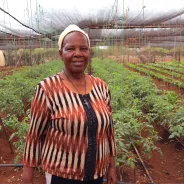
Technological advances for the benefit of agriculture
“With climate change, rainfall in Sub-Saharan Africa has declined by over 100 mm a year since the mid-1970s,” says Samir Ibrahim, cofounder of SunCulture. As a result, Africa, which has 65% of the world’s uncultivated arable land, has an annual food imports bill of $35 billion. Yet with the technological advances in agriculture, the continent would be able to feed its population without the slightest problem. “For this to happen, these advances must focus in priority on helping smallholder farmers who are the most vulnerable to climate change,” says Tamer El-Reghy. “It’s both a need and an emergency.”
Adapting to climate change: how 4 African start-ups go about it.
Farmerline, FarmWorks, SunCulture and East Africa Foods. These agricultural start-ups, which are financed by the ARAF fund, use technological innovation to help smallholder farmers adapt to climate change. All their managers agree that there is an emergency. “For farmers in Kenya, climate change is no longer a future threat‒it’s a daily disruption”, says Yi Li, CEO and cofunder of FarmWorks, a Kenyan start-up whose objective is to create a network of medium-sized farms (10 to 40 hectares) based on a rational farming model which improves adaptation to climate change.
“Our response is grounded in pragmatism: we’re building a climate-resilient supply chain, giving farmers direct income, and helping over 3,000 smallholders to boost their yields while rebuilding soil health. Adaptation isn’t optional. It’s the only path to economic stability and food security”
The agri-tech Farmerline operates in Côte d’Ivoire and Ghana. It was set up in 2013 and supplies agricultural inputs adapted to climate change, as well as training services tailored to the needs of local farmers. “A report of 60 Decibels states that farmers in the South are on the front line of the climate crisis. 70% are faced with a myriad of climate risks, such as the lack or unpredictability of rainfall, extreme heat, flooding and the increase in parasites or agricultural diseases,” says Alloysius Attah, cofounder of Farmerline.
For Samir Ibrahim, cofounder of SunCulture, making African farmers resilient to climate change necessarily requires improving access to water. “96% of cultivated land in Africa is watered with rainwater and is not irrigated. The situation is getting worse and causing sharp declines in yields.” The Kenyan start-up, which also operates in Côte d’Ivoire, Ethiopia, Togo and Uganda, offers solutions using off-grid solar technology. This provides a reliable access to water, irrigation, lighting and mobile phone charging.
“We support the climate resilience of smallholder farmers. We also improve their food security and increase their economic empowerment.”
For Elia Timotheo, founder & CEO of East Africa Foods, “technology is how we scale impact without compromising on efficiency or quality.” By aggregating real-time and projected orders from over 9,000 retailers, restaurants, and institutions across East Africa, this startup accurately predicts demand and aligns it with harvests pre-booked just a day in advance from a network of more than 27,000 smallholder farmers. “At East Africa Foods, we’re not just moving foods”, says Elia Timotheao. “We’re building a smarter, more inclusive supply chain that connects thousands of smallholder farmers to reliable markets, and ensures urban retailers get fresh produce on time, every time”.
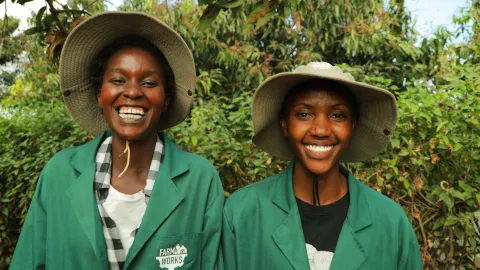 © Proparco - Cultural Video
© Proparco - Cultural Video
The impact of the ARAF fund on farmer well-being
-

90% reported increased income
-
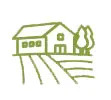
92 % improved way of farming
-

67% reported first time access of company’s products
-

89% reported increased yields
-

91% reported improved quality of life
See also
How Green Climate Fund is using ARAF funding to tackle climate change
Read the interview with Kavita Sinha, director of the Private Sector Facility at the Green Climate Fund.
Published on November 12, 2025
To go further
Voices for Change - Tamer El-Raghy, ARAF
In this Voices for Change episode, Tamer El-Raghy, managing director of the Acumen Resilient Agriculture Fund (ARAF), shares why climate finance for smallholder farmers is vital for Africa’s future.
Published on November 12, 2025
Further reading
Where climate risk meets opportunity: how Ecobank is financing Africa’s future
Published on November 6, 2025


